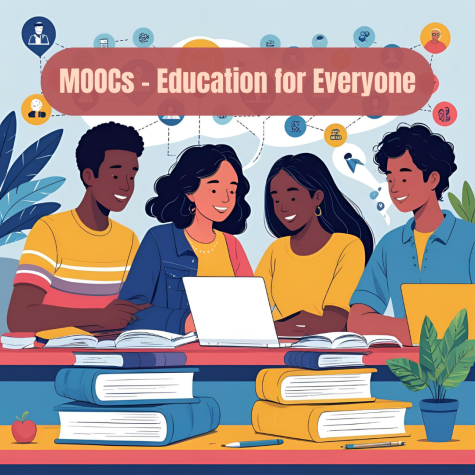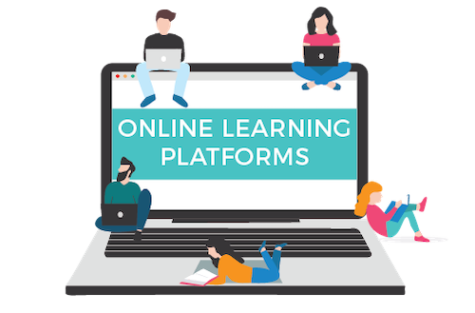Better World MOOCs (Massive Open Online Courses) - Free Education

➡️ MOOCs (Massive Open Online Courses) – Affordable, Flexible Learning for Everyone
In a world where knowledge is more important than ever, Massive Open Online Courses (MOOCs) are opening up entirely new possibilities for lifelong learning. They are flexible, often free, and provide people around the world with access to high-quality education from their homes.
MOOCs allow learners to gain professional qualifications, learn new skills, indulge in their passions, and advance their careers. They provide a modern solution to traditional educational hurdles and help to bring greater equality to the world of education - regardless of place, age, or background.
"The greatest revolution in education is that people today can decide for themselves when, where and how they learn." - Sebastian Thrun, founder of Udacity and co-founder of MOOC.
.
Jump straight to our resources on ➡️ MOOCs
Explore our comprehensive guides on -
What are MOOCs?
Massive Open Online Courses are courses that are open to an unlimited number of participants – usually free of charge or for a small fee. The term was coined in 2008, but it wasn't until platforms like Coursera, edX, and Udacity came on board that the idea gained momentum.
The MOOCs platform was created with the mission of making education available to everyone – regardless of where they live or their financial means. They are a significant step forward in the digital transformation of education and play an essential role in the democratisation of knowledge.

The format of courses is a combination of video lectures, digital learning materials, tests, and interactive forums to present their material. They are offered by universities, companies, and non-profit organisations and are becoming more popular year on year.
The Covid-19 pandemic led to a sharp increase in the demand for distance learning and MOOCs courses around the world. Platforms like Coursera saw enrollment increase by around 640% in early 2020.
In 2019, 110 million individuals enrolled in an online course, doubling to 220 million in 2021. It is estimated that the MOOCs umbrella will be worth $684 billion by 2034.
Which MOOC Platform to Use?
There are a variety of platforms offering MOOCs, each with its own focus. The majority of English language platforms are based in the USA, which has become a world leader in online learning software.
They each offer a vast selection of courses, with some offering certificates or degrees after course completion. Choosing a platform largely depends on your own individual interests and learning goals.
-
Coursera: This platform partners with leading universities and organisations worldwide to offer a wide selection of courses in numerous disciplines, from data science to philosophy.
-
edX: Founded by Harvard and MIT, edX offers high-quality courses from top universities. The platform is known for its academic rigour and diversity.
-
Udemy: Here you'll find a wide range of courses created by professionals and enthusiasts from the business world. Udemy is particularly popular for its practical and career-oriented content.
-
FutureLearn: This British platform offers courses from universities and cultural institutions. They emphasise social interaction and discussions among participants.

-
Khan Academy: Originally developed for students, Khan Academy now also offers courses for adults. It focuses on free educational resources in key areas such as math and science.
-
LinkedIn Learning: Formerly known as Lynda, this platform offers courses specifically geared towards professional development and career advancement.
-
Udacity: This platform is known for its Nanodegree programs, developed in collaboration with leading technology companies. The focus is on practical and job-relevant skills, particularly in the areas of technology and data analytics.
-
Skillshare: This platform is aimed at creative professionals and offers courses in areas such as design, photography, and writing. Skillshare emphasises hands-on learning and fosters creativity through projects and a dedicated community.
Tips for Self-Learning with MOOCs
Starting a MOOC course is easy. All you need is a computer, an internet connection and some free hours a week. Successfully completing a course, however, requires planning and discipline.
Scheduling fixed study times and working in a dedicated, quiet learning environment can help improve self-motivation. Setting realistic goals and participating in forum discussions and study groups also helps to increase course engagement and success rates.
MOOCs require patience, but they are invaluable if you stick with them. The dropout rates on these courses are high, sometimes over 90%, this could be due to insufficient support, lack of motivation, or unrealistic expectations. Self-discipline and perseverance are essential. The lack of face-to-face contact with lecturers or fellow students reduces accountability and can make learning difficult for some.

Depending on your purpose for learning, you should also check whether the certification for your course is officially recognised for your purpose, as MOOC certificates are not, as yet, officially accepted everywhere. Regardless, they are an excellent addition to any resume.
Who are MOOCs for?
MOOCs were designed to bring education to the masses. This includes school children to senior citizens, from graduates to experienced professionals. They offer content for beginners, advanced learners, and experts alike.
The flexibility and online aspects particularly benefit people who are limited in time or geographically, for example, due to family and work commitments or health restrictions. Learning is possible anytime, anywhere, at your own pace, with no fixed schedule.
MOOCs are now filling a growing role in professional development. Employers are starting to recognise the importance of digital skills, the self-motivation required to complete a MOOC, and valuing the drive for personal growth. With courses featuring practical content in project management, data science, marketing, and soft skills, companies are utilising MOOCs internally to further their employees' professional development.

Certificates from recognised courses, for example, from Google, IBM, or top universities, help to improve job market prospects, especially in rapidly changing industries such as IT, media, and education.
MOOCs aren't just a career tool; they also enrich personal lives. Whether it's philosophy, politics, climate, creative writing, psychology, or astronomy - those who remain curious not only expand their knowledge, but also their perspective on the world.
During quieter periods such as retirement, parental leave, and career breaks, MOOCs offer a meaningful way to stay mentally active. They encourage self-reflection, creativity, and build self-confidence. Lifelong learning doesn't mean constantly taking exams, but instead indulging in your interests and opening up to new ideas.
MOOCs help to create greater equality. By bridging educational barriers and reaching those in structurally weak regions, MOOCs help to close the education gap and promote a culture of lifelong learning. The integration of MOOCs into existing educational systems, for example, through recognition in degree programs, is an opportunity to connect formal and informal education.

The Future of MOOCs
The world of MOOCs is evolving rapidly. Artificial intelligence, adaptive learning systems, and the use of gaming elements will make courses even more personalised and interactive in the future. Hybrid formats that combine online and in-person learning are also becoming popular.
As more universities and companies recognise the added value of MOOCs for education and training, certificates will become more closely linked to formal educational qualifications. The availability of multilingual courses is growing, and niche topics are increasingly finding their place in the MOOC portfolio.
MOOCs have proven that education doesn't have to be tied to classrooms or lecture halls. They make knowledge freely available and encourage people to take responsibility for their own learning.
MOOCs don't offer a one-size-fits-all solution, but they do open doors that were often previously closed. Education has never been more accessible than it is today. By combining global education with individual freedom for the first time, the results are remarkable.
Better World Info also serves as an excellent tool for education. Feel free to explore our comprehensive and informative topics on Politics, Development & Aid, Conflict Regions, Human Rights, Social Justice, Environment, Climate Change, and many other future-relevant topics.
Author: Jasmin, 09.07.25 (Translated and Edited by Rachael Mellor, 15.08.25) Article licensed under CC BY-SA 4.0
For further information on MOOCs see below ⬇️
Info on Better World MOOCs (Massive Open Online Courses) - Free Education
- General Info on MOOCs[27]
- Economics & Statistics[63]
- Politics & International Relations[59]
- Sociology, Anthropology & Social Work[34]
- Health & Education[61]
- Environment, Sustainability & Climate Change[68]
- Food, Water & Energy[41]
- International Development[49]
- Human Rights, Justice & Conflict[46]
- Social Business & Entrepreneurship Skills[30]
- Management & Leadership Skills[60]
- Journalism, Advocacy & Communications[29]
- Other Practical Skills[30]